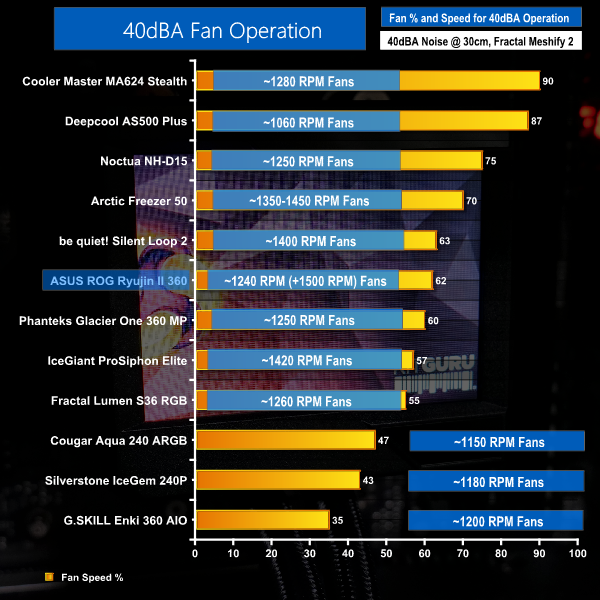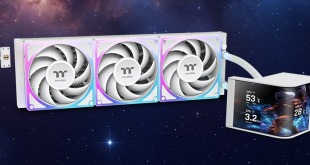Having assessed the coolers at full fan speed, we see clear separation between the AIO cooler performance with their high-speed, loud fans and the competing lower-speed fan air coolers. As such, we have a look at some test results with the noise levels locked to 40dBA on each CPU cooler.
This noise-normalised test is perhaps a little unfair towards AIO liquid coolers and air CPU coolers with dense fin arrays. Those designs need high pressure fans to penetrate the dense arrays and this usually comes in the form of high-speed and loud fans.
With that said, noise is noise when it comes to user tolerance, so the way in which a cooler is designed and optimised is not necessarily a concern to a user simply wanting low-noise, 40dBA-type operation.
Keeping the pump at its full 2800 RPM speed, we reduced the 60mm embedded fan to a sensible level and then tuned the noise output of the Noctua NF-F12 IndustrialPPC PWM fans until we hit 40dBA overall noise output.
The embedded fan was set just below 1500 RPM, and we managed to hit 40dBA output from the cooler with the Noctua fans running at 1240 RPM – or 62% of their full speed.
This fan speed level is about typical for competing triple-120 coolers that we have seen from the likes of Phanteks and Fractal. The key differentiator here is that the ASUS cooler has an additional fan – the 60mm unit. So a similar 40dBA-linked speed level to the competitors is actually quite a reasonable result for the Noctua fans on the ROG Ryujin II 360.
 KitGuru KitGuru.net – Tech News | Hardware News | Hardware Reviews | IOS | Mobile | Gaming | Graphics Cards
KitGuru KitGuru.net – Tech News | Hardware News | Hardware Reviews | IOS | Mobile | Gaming | Graphics Cards



